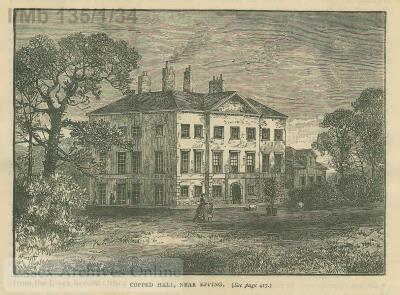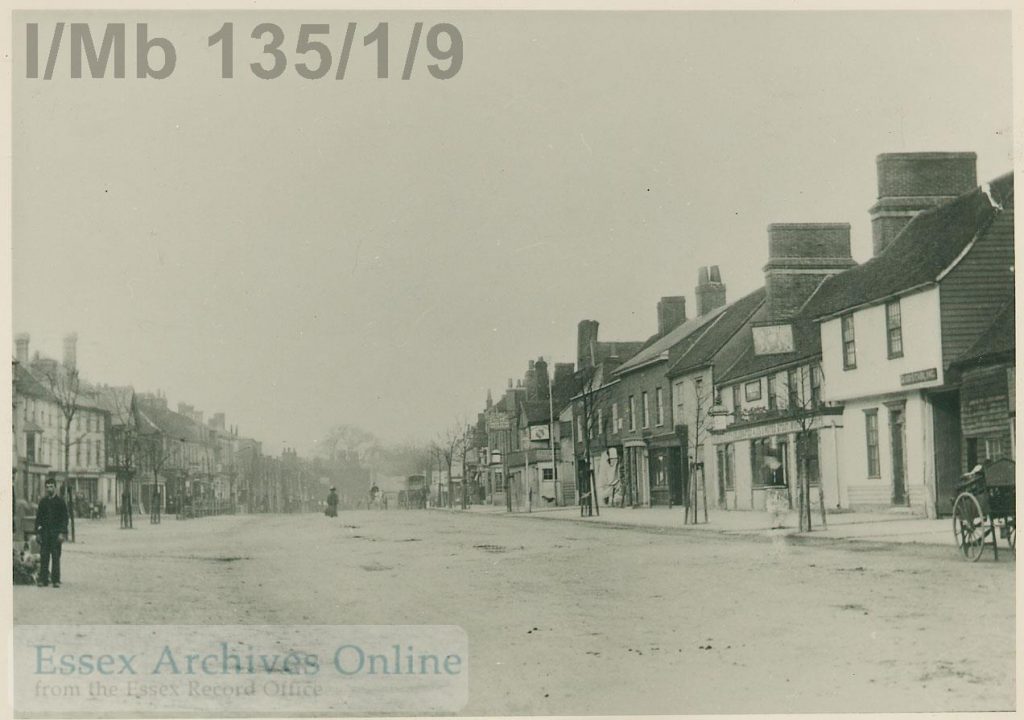Recently our You Are Hear Project Officer, Sarah-Joy Maddeaux, has been cataloguing a collection of oral history interviews received from Epping Forest District Museum. The interviews were collected in 2004-2005 as part of a Heritage Lottery Funded project, called Changing Perceptions, which aimed to collect everyday accounts to illustrate how life in the district has changed over the twentieth century. Here Sarah-Joy shares some impressions from the recordings.
What do a farmer, a dentist, a magistrate, and a blacksmith have in common? No, this is not the start of a joke. The answer is that these were all people interviewed for Epping Forest District Museum’s Heritage Lottery Funded project, Changing Perceptions. The Museum kindly deposited copies of a selection of their interviews with us at the Essex Sound and Video Archive, and I have had the joy of cataloguing them (Series Reference SA 61/1/1).
The collection shares all of the wonderful features of any oral history interview: providing an intimate insight into the lives of everyday people, told in their own voices, ranging from amusing anecdotes to heartfelt memories. It also achieves its primary purpose of demonstrating exactly how much life has changed in the last century, even in the last fifty to sixty years. Even taking rose-tinted spectacles into account, a common impression running through the collection is of small towns and villages with a true community spirit, self-sufficient places with a range of shops and services and a real local character.
But one of the distinctive assets of this collection is its diversity. The interviewers spoke to a range of people: people from different parts of the UK, in different professions, with different backgrounds and experiences. Listening to these together forms a broader picture of the range of life within Epping Forest.
For instance, Bob Willis is a lively, frank character who was born in Suffolk in 1928 but moved to the Gaynes Park Estate, Coopersale when he was nine. He spent most of his working life at Cottis Ironworks. His interview (SA 61/1/1/5/1) gives interesting technical details about his work as a carpenter at the brickworks. It also reveals social information about the relationship between employer and employee.Then he unexpectedly casts light onto significant local events, such as the fire at Copped Hall (though he was not speaking from personal experience).

Print of Copped Hall, near Epping, which suffered a serious fire in 1917
The interview with retired dentists Alain Quaife and Graham Bond (SA 61/1/1/8/1) is very different. It also contains technical information about their occupation, but in the process gives a greater insight into social history. For starters, their accents are more polished: perhaps to be expected from their higher class, more educated backgrounds. They remark on changing trends in dental hygiene, exploring possible reasons for this, beyond better public awareness. While both interviewees have now been retired for over ten years, their comments about how the NHS operates, and the difference between private and public treatment, still provide an interesting insight today. A word of warning, though: some details of treatment, particularly in the early years, are so graphic they may give you virtual toothache.
Maureen Chalk (SA 61/1/1/4/1) and Jill Atlee (SA 61/1/1/7/1) both describe working at the Bank of England printing works in Debden, and about the experience of raising children in the area. As Jill’s interview reveals, as recently as the late 1970s, it was the norm that women left work to raise children, perhaps returning to work part-time when their children went to school. But this phase of motherhood provided some opportunities to socialise with other women in the same situation, as Maureen describes.
Some of the interviews might stir a response that prompts you to take action. After listening to Joyce Woods talk about her experience of serving as a magistrate (SA 61/1/1/9/1), might you consider volunteering for this valuable work? Do you have the qualities she lists as essential to being a good magistrate?
Or listen to the interview with retired farmer John Graham (SA 61/1/1/1/1), recorded in 2004. How does that make you feel about the state of the farming industry in Britain now?
The authentic stories of real people can be more persuasive than thousands of words of polemic in a newspaper feature or a commissioned report.
Do these interviews change your perceptions? Of Epping Forest, of certain professions, of life in the mid-twentieth century? And does that in turn make you reflect differently on your own neighbourhood, career, life? What will your children and grandchildren think of your Essex?
Thanks to our Heritage Lottery Funded You Are Hear project, the full-length interviews can all be heard through our Essex Archives Online catalogue. Contact the Museum for access to recordings not deposited with us.
You can get further impressions of how life in Epping has changed by visiting the town’s own listening bench, located in the churchyard of St John the Baptist (St Johns Road off the High Street). Join us for the official unveiling of the bench on Saturday, 4 November 2017, at 3pm – which will still leave you time to get to the firework display of your choice!

